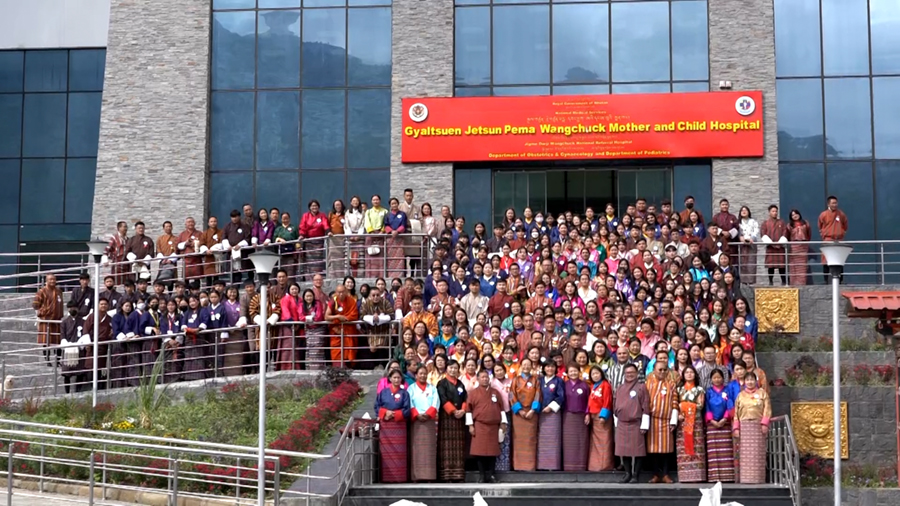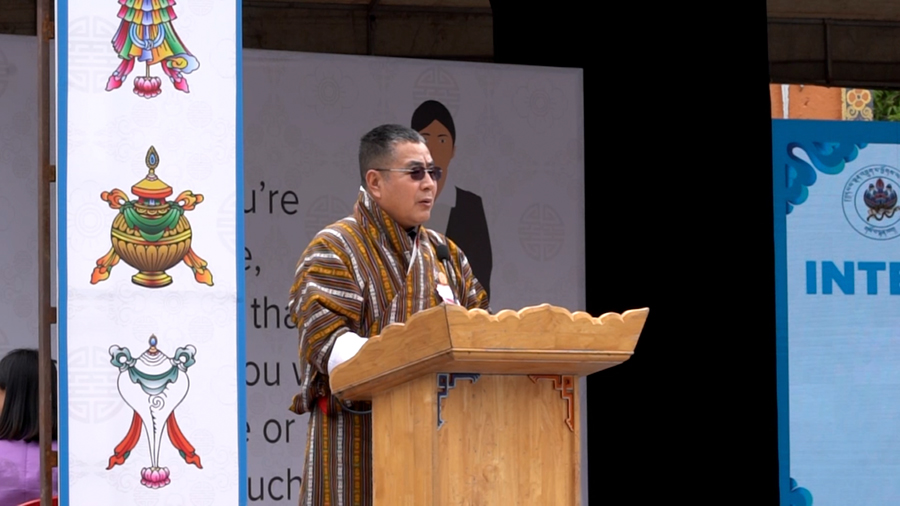
With attrition among nurses hitting 25 per cent, nurses say that the impact of the rising attrition rate is adding pressure on them with the number of experienced health workers plummeting. At the celebration of International Nurses Day today, the health minister said that the attrition rate of nurses in the national referral hospital is even higher with the rate nearing 30 per cent. The minister said that he is worried about the escalating rate.
 At the celebration of International Nurses Day in the capital today, around 600 participants walked from the Gyaltsuen Jetsuen Pema Wangchuck Mother and Child Hospital to the Clock Tower Square. Several nurses who have served more than 30 years in the health sector were recognised.
At the celebration of International Nurses Day in the capital today, around 600 participants walked from the Gyaltsuen Jetsuen Pema Wangchuck Mother and Child Hospital to the Clock Tower Square. Several nurses who have served more than 30 years in the health sector were recognised.
The health minister in his address to the gathering said the rising attrition of nurses in the health sector is becoming worrisome.
He requested the nurses not to resign from their profession as it could adversely impact the functioning of the health system in the country.
“The work that was done by 100 nurses is now done by 70 of them. The attrition rate for the JDWNRH hospital is nearing 30 per cent. Taking this platform as an opportunity, for those 1,500 nurses, as patients keep on increasing and the emergency ward is becoming cramped up, those nurses are taking on extra responsibilities. I am worried that we may fail to provide our services. On behalf of the people, I would like to take this opportunity to request the nurses not to resign and those who have left to come back to the country.”
 The health minister revealed plans to hire 100 foreign nurses earlier this year to address the attrition in the health sector.
The health minister revealed plans to hire 100 foreign nurses earlier this year to address the attrition in the health sector.
On the other hand, those remaining in the country are already feeling the effects of the rising attrition.
“From my experience, within the last one to two years, I felt that the majority of the experienced nurses and midwives have left overseas. As a result, the ones remaining here are facing challenges. Firstly, as the experienced health workers leave, the new recruits are not as experienced and they need guidance to cater for the patients. So, we are facing challenges while providing services. The work that was done by four nurses is now done by one or two of us,” said Sonam Chophel, a staff nurse at JDWNRH.
“It is happening more in the younger generation. I can see that. In our time it was not like that. There was no choice or opportunities and we never felt the need to go out and earn money. Maybe reducing the workload and having enough manpower will help and also rewarding the nurses like today will be an encouragement,” said Kamala Siwakoti, a clinical nurse at Gelephu Central Regional Referral Hospital.
Today, the country has around 1,500 nurses across the country.
Sonam Yuden
Edited by Kipchu






